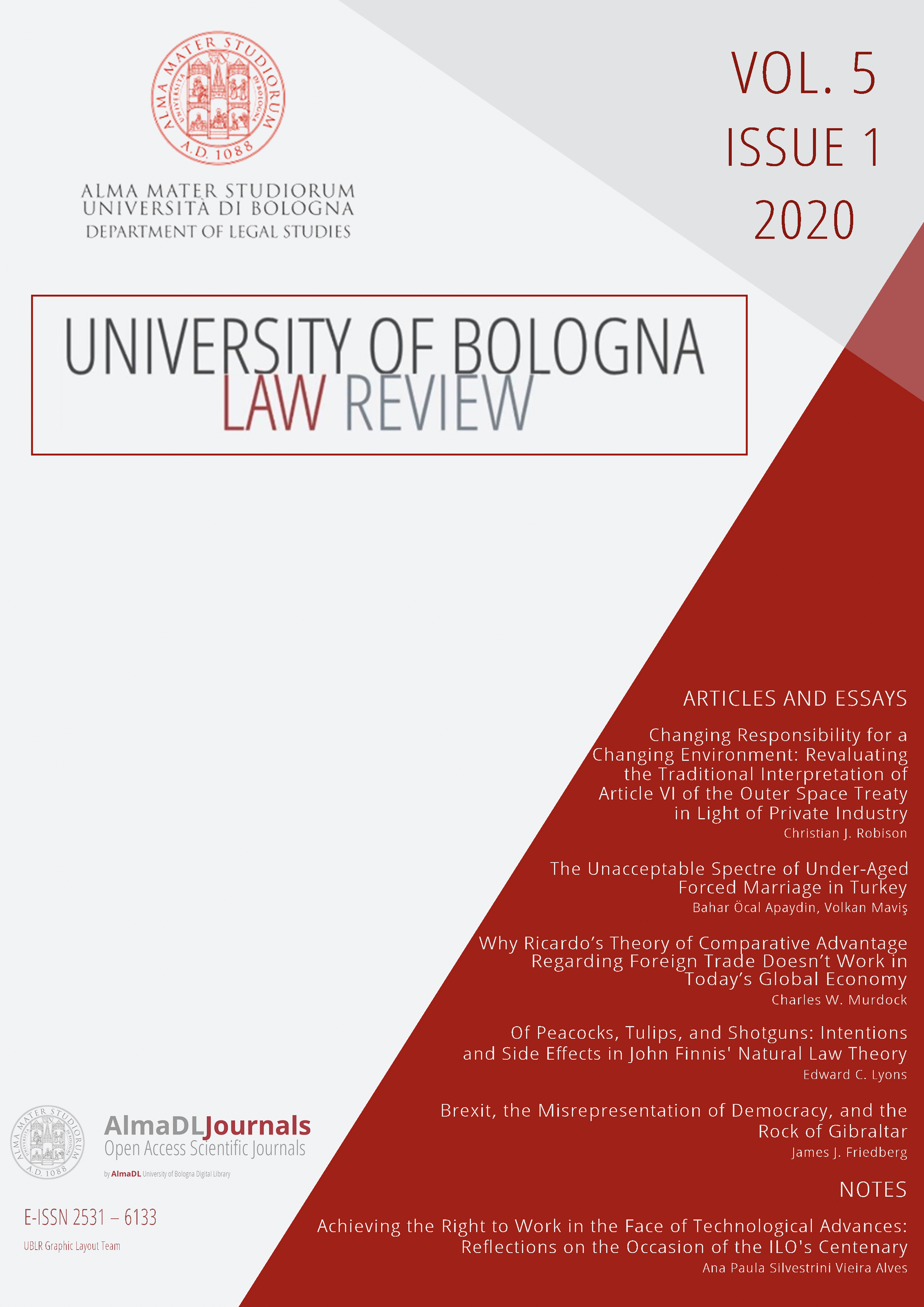Achieving the Right to Work in the Face of Technological Advances: Reflections on the Occasion of the ILO's Centenary
DOI:
https://doi.org/10.6092/issn.2531-6133/11393Keywords:
International Labour Organization, United Nations, Fourth Industrial Revolution, Automation, Educational TechnologyAbstract
The process of transforming human labour into machine work has long been on the agenda of the International Labour Organization. The difference is that today, industry 4.0, artificial intelligence and big data are undermining highly technical qualified work as well as “heavy labour”. Therefore, on the ILO's centenary, it becomes relevant to reflect on its roles in the face of the challenges posed by technological innovations. Of these, we highlight the need to reinvent education to increase employability and to create protection mechanisms for those in uninterrupted 24-hour online employment, because summarize the contradictions experienced in the current world of work facing new technologies. The ILO cannot be indifferent to this new focal point: the balance between technological innovations - which certainly bring us enormous benefits - with the new demands of training and legal protection of workers.
Downloads
Downloads
Published
How to Cite
Issue
Section
License
Copyright (c) 2020 Ana Paula Silvestrini Vieira Alves
The copyright of all the manuscripts on this journal belongs to the respective authors.
This journal is licensed under a Creative Commons Attribution 4.0 International License (full legal code).
See also our Open Access Policy.















